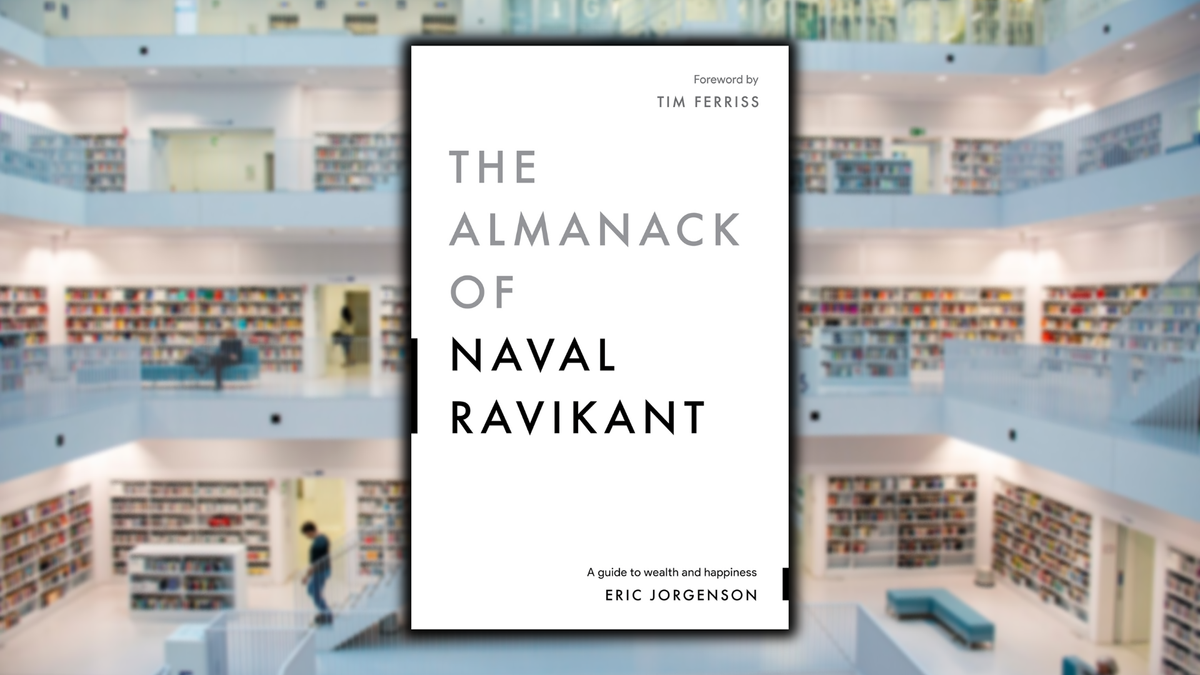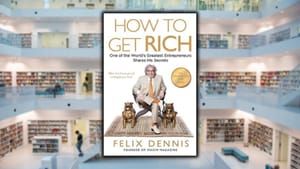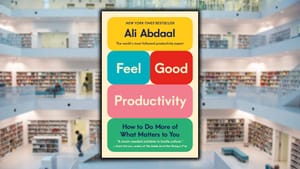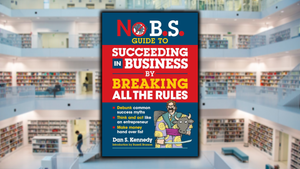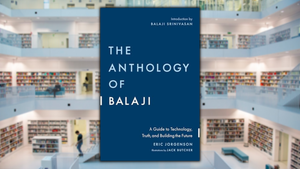
Summary:
Being rich and happy are learnable skills. As in certain propositions in physics, starting conditions are very important, but one of the greatest lessons you'll learn from reading books like this one is that where you start off doesn't have to be where you end up. If there's a skill you lack, you can learn it; if there's a big scary problem looming over you, you can overcome it; if you want more out of life, you can have it.
But, there are traps along the way. These traps can take the form of pessimism and self-defeating behaviors; or the creeping expansion of desire; bad advice from well-meaning people; and a lot more that The Almanack of Naval Ravikant can help you avoid.
Naval is the founder of AngelList, a website that allows startups to raise money from angel investors free of charge, and he's had over 70 successful exits himself, after investing in companies like Uber and Twitter before almost anyone else.
He's become somewhat of an entrepreneurship/start-up culture icon, and this book is a collection of his greatest wisdom distilled from a decade of podcast appearances and thousands of tweets. After a lifetime of study and application of philosophy, economics, and wealth-creation, Naval has proven the impact of his principles, and they're all laid out here in this book.
The book was compiled by Eric Jorgenson, a writer and startup founder himself, and someone who had experienced first-hand the seismic shifts in attitude and potential that Naval's teachings could confer on anyone who wanted to learn.
After having his own life changed by Naval, he noticed that most of this fantastic advice was just scattered across the four winds of the internet, where people might find it or might not. Realizing the value of what Naval had to teach, Eric collected the greatest insights and included them in one book for wider public consumption.
The "Navalmanack," as it's sometimes called, is divided into two sections: wealth and happiness. Wealth comes first because, just like in an airplane, you have to help yourself first before you'll be in the best position to help others. As we'll explore below, money is uniquely suited to removing the sources of unhappiness, and allowing us to get down to the real business of living, but the exclusive lifetime pursuit of money is a dead end that too many people find out about too late.
But there are traps here too, as runaway desire - the hedonic treadmill - can have us pursuing all these powerful and conflicting desires and sabotaging our own happiness because we never want what we already have. We're always looking for that next thing, the one thing that's waiting for us just over the horizon and that's going to make us happy and fulfilled forever.
As Navel teaches, that "one thing" inevitably leads to the next thing, and the next, and the next, and then we get to the end of our lives never having fully lived a single day. He's very wise in pointing out that we should choose our desires carefully, as every desire is a chosen unhappiness. Whenever there's something that we want, it's because it's currently absent from our life, causing us pain. If we let these desires run circles around us, we'll never have peace.
We're living today through the internet gold rush, where there are so many opportunities out there to make money and to build lasting wealth, but the reckless pursuit of that wealth and opportunity can only lead to pain. Instead of spreading yourself thin and exhausting yourself, Naval breaks down the fantastically important concept of leverage, and shows how it's much better to work smart and then hard.
We'll explore leverage more in-depth below, but leverage is all about applying your current resources in the best possible way, where they're going to have the largest possible impact. It's about positioning yourself in such a way that you capitalize on all this amazing opportunity that's out there today instead of wearing yourself down and getting lost in minutiae. Leverage will teach you exactly where to deploy your limited energies in order to become maximally effective.
One of the biggest takeaways from the book is the emphasis on leveraging specific skills - skills that you can't be trained for. If there's something that you can be trained for, someone else can be trained to replace you, so you have to cultivate specific, valuable, domain-specific knowledge if you want to be maximally rewarded in the marketplace. This means doing something so well, so creatively, so remarkably that someone else can't just "take a course" to do what you do.
Yes, that means that competition is fiercer than ever, but it also means that there's greater freedom than ever to play what Naval calls single-player games. Those are pursuits that are more individual, internal, and winnable than, say, making the most money out of anyone in your firm or city.
Comparison is not only the thief of joy, but it's also always a feature of multi-player games, where you're competing against everyone else. An internal game, however, would be something like raising a child to be the best person they could be, or completing a marathon by yourself, or building a business that you're proud of.
A general theme here is the virtue of playing the long game, and deploying the power of compound interest over time. Not just with your investments, but with your relationships, your health, your knowledge, and more. Building a life you love and a character you're proud of takes place over an extended period of time; these things are not to be rushed.
Compound interest works on relationships as trust develops over time and people learn to recognize that they can rely on you; it works in health as the choices you make today compound to impact your vitality in the future; and it works in your knowledge, as what you learn today stacks onto what you learned yesterday, and a whole lifetime of education is brought to bear on every new situation you encounter in the future. This all takes time!
What's interesting about compound interest though is that it doesn't feel like it's working in the beginning - the exponential effects only kick in later. So you have to keep working at whatever you're doing and understand that you're working on a timescale of years and decades, not just days or weeks.
We end our discussion of the Key Ideas below with a bold look at the reality of death, in full consciousness of the crystallizing effect it can have on our thinking. There's nothing like the prospect of death to focus the mind, and when looked at through the lens of either regret or preparation, an awareness of death can help us lead lives truer to ourselves.
Right now, today, is the only time when we have any power - when we can apply any leverage - and we are always creating our own futures with every decision and action that we take. Small, nearly invisible differences in our choices today lead to wildly different outcomes over time, and so we can never afford to relinquish our power in the present moment.
Lastly, Naval gets even more existential as he asks, “What if this life were the paradise we were promised, and we’re just squandering it?”
Fair question! It reminds me of this quote from Dostoyevsky's The Brothers Karamazov, which I'll leave you with and which has followed me around for years:
“Do not weep, life is paradise, and we are all in paradise, but we do not want to know it, and if we did want to know it, tomorrow there would be paradise the world over.”

Key Ideas:
#1: “I was born poor and miserable. I’m now pretty well-off, and I’m very happy. I worked at those.”
This is a direct quote from Naval, and here you can recognize his internal locus of control, meaning his belief that his success, failure, happiness, and unhappiness are all directly influenced by his own actions.
It may seem obvious that money is something you'll have to work for, but perhaps less obvious is the fact that happiness works the same way. We can create the conditions of our own happiness, in exactly the same sense that we can create the conditions for wealth-creation.
That's not, of course, to say that anyone being poor or miserable is "their own fault." That's a horrid way of looking at the world. Rather, it's to say that where we begin doesn't have to be where we end up, and that we have tremendous power to influence and to change our circumstances. Never forget that.
#2: "Let's get you rich first. I'm very practical about it because, you know, Buddha was a prince. He started off really rich, then got to go off in the woods."
You can't help anyone if you're poor. At least not "at scale." You can have a life-altering impact on anyone with whom you come into daily contact, but if you want to have a massive positive effect on the world, you're going to have to rise above the level of your own constraints.
That means that you can have the noblest sentiments in the world - you can really, truly and honestly want the best for people - but if you're stuck in a cycle of personal debt, personal problems, and personal limitations, you're never going to attain the kind of "mental bandwidth" necessary to be able to care about and solve anyone else's problems.
So, realize that there's nothing "virtuous" about poverty and that rich people are not the enemy. You won't magically become a bad person if you end up making a lot of money. On the contrary, you may find yourself becoming a better person because you'll have much more discretionary income to donate to amazing causes and lots more free time available to help out in person.
#3: “What making money will do is solve your money problems. It will remove a set of things that could get in the way of being happy, but it is not going to make you happy. I know many very wealthy people who are unhappy.
Most of the time, the person you have to become to make money is a high-anxiety, high-stress, hard-working, competitive person.
When you have done that for twenty, thirty, forty, fifty years, and you suddenly make money, you can't turn it off. You've trained yourself to be a high-anxiety person. Then, you have to learn how to be happy."
#4: “Specific knowledge is knowledge you cannot be trained for. If society can train you, it can train someone else and replace you.”
If you have the same skills and abilities as everyone else, you have no leverage. You can never ask for a raise or more time off or more recognition because there are a dozen people right behind you ready and willing to take your job. This, it need not be said, is a precarious position to find yourself in, but it's the economic reality of a huge portion of the world's workforce.
Specific knowledge is often highly technical or creative and cannot be outsourced or automated. A professional athlete is in no danger of having his job outsourced because there is no one who is able to do what he can do for his team - assuming he is any good. He can make demands on his employer and have a reasonable chance of getting what he wants because he's not easy to replace.
Contrast this with, say, a garbage man (a perfectly respectable position), and you can see that he would never be able to make the same demands. Almost anyone can be trained to become a garbage man, so, even as worthy of respect and dignity as he may be, he has no leverage.
#5: “Learn to sell. Learn to build. If you can do both, you will be unstoppable.”
Building in public is important too, according to Naval. Along with specific knowledge and leverage, accountability and equity are two key components of getting rich in this new economy.
Accountability is about taking responsibility both when things go wrong, and when they go right, and if you have part equity - ownership - in a business, when things go right you stand to gain immensely.
So, build your company or venture in public, sharing successes, failures, and lessons learned along the way, and learn how to be a compelling evangelist for your vision, selling people on the idea of why they should follow you.
If you're leading from the front, if you have skin in the game, you can end up creating a ton of value not just for yourself but for everyone who tags along. As Naval also says, "You will get rich by giving society what it wants but does not yet know how to get. At scale.”
#6: “Play iterated games. All the returns in life, whether in wealth, relationships, or knowledge come from compound interest.”
Playing iterated games means that you don't have to hit a home run every single time. You're not going to be able to build a million-dollar business in the next week, but it's absolutely achievable after a few years of patient, dedicated work.
In the same way, deep, meaningful relationships don't fully develop the very first time meeting someone; it takes weeks, months, sometimes years of appreciation, thoughtfulness, and care for that relationship to blossom into everything it could be. It's a thousand small kindnesses, not a marriage proposal on the first date.
This same idea applies everywhere in life, and if you focus on maximizing today, making this day everything it could be, and you string enough of those days together, you're going to experience exponential growth that may surprise and delight you.
#7: Play single-player games. These are "games" - approaches to life - where you're not in direct competition with anyone else, but rather endeavoring to stretch your own capacities as far as you're able.
Looking good and making lots of money tend to be multiplayer games because you're competing against everyone else on the planet who's playing the same game. If you've placed yourself on that same dominance hierarchy, then everyone who's more beautiful or richer than you is going to be "beating you," and you're just setting yourself up for a lifetime of limitless comparison and crushing envy.
In contrast, single-player games are internal and winnable. A single-player game could be to become the best mother you're capable of becoming, or doing your absolute best at whatever it is you've committed to doing. Even making or saving a certain amount of money could be a single-player game insofar as whether you win or lose doesn't depend on how anyone else is doing.
#8: “It’s much more important today to be able to become an expert in a brand-new field in nine to twelve months than to have studied the 'right' thing a long time ago."
Rapid learning is the most in-demand skill you could ever possess today. It's not about whether you earned a Master's degree 15 years ago, but about whether you possess the ability to learn whatever it is your job requires you to know today and tomorrow in order to remain competitive.
This comes as a shock to many people who expected - were told - that with their university degree they would be economically safe for a lifetime. That's just not true anymore, and it's because the world moves faster than the speed of institutionalized education.
What the marketplace values changes over time, and you have to be able to keep up. So, yes, learn concrete skills that don't change over time, but also work on your ability to learn, remember, and apply what you're learning. That way you'll never fall too far behind, and you'll always have a job.
#9: “Someone who makes decisions right 80 percent of the time instead of 70 percent of the time will be valued and compensated in the market hundreds of times more."
This all comes down to leverage. In high-leverage situations, small differences in judgment and capability really get amplified. So what that means, is that if your decisions affect a large enough budget or population (or really anything else), then a better decision-maker will see the benefits of making a good decision and the costs of making a bad decision soar to towering heights.
Think about the difference between a small business owner and the CEO of a multinational corporation. The small business owner can make a string of excellent choices and yet realize only a (relatively) small increase in profits.
Whereas the CEO, in command of a team of hundreds and a budget in the millions, will see the effects of their decisions greatly amplified. When the quality of your decisions affects a huge number of people, even a slight increase in decision-making ability will result in a market value hundreds of times more than if your decisions affected only a few people. The magnitude may be similar - life or death - but the scale is much different.
#10: "If you're a perpetual learning machine, you will never be out of options for how to make money. You can always see what's coming up in society, what the value is, where the demand is, and you can learn to come up to speed."
#11: “To think clearly, understand the basics. If you're memorizing advanced concepts without being able to re-derive them as needed, you're lost."
Elon Musk famously thinks in terms of first principles. When first looking to build rockets of his own, he was confronted with the prohibitive price of about $8,000,000 to buy each one, compared to the cost of the basic materials out of which the rockets were built, which came to just 2-3% of the total cost of manufacturing.
Knowing this, he was able to assemble a team of engineers and scientists to build the rockets and rocket components in-house, thereby saving him millions of dollars and allowing him to compete against the established players in the aerospace industry.
Likewise, in Western music at least, all the melodies and harmonies are composed of the same 12 basic notes. So, knowing and being able to play these notes allows you to "build" any melody or harmony you could ever want to build. The notes are the first principles from which music is derived.
Most of problem-solving is recognizing what problem it is that you have, which sounds much easier than it actually is. Too often, we arrive at a problem with a pre-conceived formula that doesn't match the problem we're trying to solve, or if we have the right formula or concept, we don't know how to adapt it to the situation at hand. So, start with first principles, understand the basics, and move up in complexity from there.
#12: “You should not grind at a lot of hard work until you figure out what you should be working on.”
We only have so much work capacity, and we owe it to ourselves and to what it may be possible for us to create to save most of it for what's going to be most enduring and epic.
It's possible to spend (read: waste) an entire lifetime working according to someone else's priorities and vision, never once questioning whether or not that's where we're likely to be most effective and fulfilled. It may even be true that we work very hard and quite diligently on something that should best be left to someone else entirely.
Now, it's quite easy for this quote to be taken out of context to mean that we shouldn't give our best effort to work that's "beneath us" (whatever that means). Whereas in reality, it means that the majority of our effort should be directed towards finding out what we should give everything to.
It's been said that most of life is a search for who or what needs us the most, and that's the basic sense of what Naval is getting at here. Conduct a thorough, patient, and exhaustive search for where your unique talents and abilities will make the most difference, and then go all in.
#13: “When you’re reading a book and you're confused, that confusion is similar to the pain you get in the gym when you're working out. But you're building mental muscles instead of physical muscles. Learn how to learn and read the books."
It's well-documented that most learning takes place when you're being challenged. If you're studying something and it's coming easily to you, that's a sign that you're not really learning.
Therefore, the most effective study methods are going to be the ones that feel the most challenging, not the ones that require little cognitive effort. It's forced recall (testing yourself without looking at your notes) that's going to be more effective than just re-reading, and spaced repetition (reviewing the material at periodic intervals) that's going to be more effective than just cramming for an exam the night before.
So, lean into the confusion if you want to learn more effectively. Challenging yourself, stretching your cognitive abilities beyond where they are now - especially to the point of discomfort - is how you're going to advance. Naval is right: if you keep lifting the same weight at the gym, your muscles are never going to grow. And if you keep persisting in inefficient study habits, you're never going to learn.
#14: “If all your beliefs line up into neat little bundles, you should be highly suspicious.”
The world is infinitely more complex than our views of it. Everyone seems to have some grand, sweeping narrative about how the world works and some "system" that prescribes what a good, sensible person is supposed to believe, but the world stubbornly refuses to be placed within any system.
Real life is more beautiful, staggering, and wonderful than anything we could ever say or write about it, and so our beliefs can never arrive pre-packed and standardized for our consumption. Truth can never be captured in any system, so whenever we think that we've found some system that explains everything away and obviates the need for any more additional thought, that's the moment when we need to begin questioning our fundamental assumptions most vigorously.
#15: “Today, the way we think you get peace is by resolving all your external problems. But there are unlimited external problems. The only way to actually get peace on the inside is by giving up this idea of problems."
Problems have the tendency to multiply. Not only that, but we're never going to arrive at a point in our lives where there are no additional problems left to be solved. More to the point, we wouldn't even want to live such a life, because solving meaningful problems is part of what makes life worth living.
The trick is to select the type of interesting problems we want to have, and then double down on our capacity to solve them. Raising a child to be a mature, responsible, loving adult is an excellent "problem" to try and solve, just as an example. So is starting and growing a sustainable business or adventuring to Mars and beyond.
Contrast these sorts of problems with the ones Naval is referring to, such as struggling to pay rent and one-upping your neighbors. Soothing their ego and avenging slights and insults are two types of problems many people have today, and look how boring those problems are!
It's possible to give up on the idea of problems. Challenges, tests, and opportunities - these are all worthy of your energies as a human being. They are not "problems," though. You can be free of problems. Approached in the correct way, you don't have problems; you just have work to do!
#16: “By the time people realize they have enough money, they’ve lost their time and their health.”
Die with Zero is a great book that addresses this conundrum precisely. Time, health, and money are three critical resources that rarely seem to be available together during one's lifetime.
Often, young people have abundant health and a wealth of available time, but less money with which to deploy both. Conversely, when people get older they tend to have plenty of money and even quite a bit of time, but their health condition is such that they can't fully enjoy it.
There's no easy answer to give here, but being aware of the "problem" can be the first step towards finding a solution. Knowing this in advance, you don't have to throw away your youth in order to get money that you'll never be able to spend, and you can begin to make intelligent, informed choices about how best to allocate these three essential resources: time, money, and health.
#17: “Every desire is a chosen unhappiness.”
Naval Ravikant has suggested to others that they have no more than one single overarching desire in their lives at any one time. This can change as your priorities change, of course, but when you're being pulled in all these different directions, you're never going to get anywhere.
Every desire is characterized by the fact that you don't have it yet, so Naval says that he recognizes this one desire as the place where he's chosen to be unhappy. He recognizes it as the "axis of my suffering."
Choose your axes of suffering carefully, and don't handicap yourself by having all these different unmet desires operating in your life at any one time. It's just going to sap your focus, drain your vitality, and make your life seem bleaker than it actually is. When you can truly and honestly say that you only want what you already have, then you've basically won.
#18: “The fundamental delusion: There is something out there that will make me happy and fulfilled forever.”
Perhaps you've heard of the hedonic treadmill. It's the observed tendency of humans to quickly return to a relatively stable level of happiness despite major positive or negative events or life changes. It's the futile quest for "more, more, more" that never achieves consummation because as soon as we get what we think we want, we realize that there's something else that we want that's waiting for us just over the next ridge.
And yet we persist. However, when you recognize this delusion for what it is, you begin to take back some of your personal power. You're no longer being dragged along by some carrot that's being dangled over you just out of reach. You can unplug that treadmill and go outside.
#19: “We go around desiring things all day long and then wonder why we’re unhappy.”
#20: “Death is the most important thing that is ever going to happen to you.”
Either that, or it's the least important thing that's ever going to happen to you. I don't know anyone who can say for sure. But either way, it makes sense to prepare for it as much as you can. Don't run from it, and don't pretend like it doesn't exist.
This is a huge topic for such a short book breakdown, but we'll just briefly look at death through the lens of both regret and preparation.
Death is the moment at which your regrets will cause you the most pain. So when Naval says that it's the most important thing that is ever going to happen to you, we can appreciate its potentially life-altering significance. The anticipation of this future regret can change our choices today, so that when we get to the end of our lives, we can look back on them with pride and satisfaction, knowing that we gave everything we were capable of giving.
In terms of preparation, we can also think of death as a giant, unfathomable mystery. It could be the end of everything we've ever known, an eternal nothingness before which we cease to be, or death could be the very beginning. Our entire lives could be but a preparation for whatever awaits us at the moment after death.
Either way - regret or preparation - death is infinitely important because the consequences for our lives are so massive. Whatever you believe will happen, wherever you think you will go, the only thing that makes sense to do right now is to live, deeply and completely, with the full knowledge that what we do now echoes in eternity.
#21: Just a simple question: “What if this life were the paradise we were promised, and we’re just squandering it?”

Book Notes:
“For my parents, who gave me everything and always seem to find a way to give more.”
“Keep your hands up and your mind open.”
“Technology democratized consumption but consolidates production. The best person in the world at anything gets to do it for everyone.”
“Most of life is a search for who and what needs you the most.”
Find what feels like play to you but seems like work to others. More than likely, that's what you're going to be happiest doing for the rest of your life, or at least as a first step into the boundless future.
The highest form of leverage is found in products with no marginal cost of replication. That means products that don't cost you anything to create at scale. For example, an online course, a song, or an ebook has no marginal cost of replication because more copies can be created and disseminated without you having to spend more money on production. Contrast this with, say, a piano, which would cost you extra money and time to replicate.
“Earn with your mind, not your time.”
“In fact, I have too many ways to make money. I don’t have enough time.”
“Study microeconomics, game theory, psychology, persuasion, ethics, mathematics, and computers.”
“Become the best in the world at what you do. Keep redefining what you do until this is true.”
“The most important skill for getting rich is becoming a perpetual learner.”
“Play stupid games, win stupid prizes.”
“When today is complete, in and of itself, then you’re retired.”
“Charisma is the ability to project confidence and love at the same time. It's almost always possible to be honest and positive."
"I think people have a hard time understanding a fundamental fact of leverage. If I manage $1 billion and I'm right 10 percent more often than somebody else, my decision-making creates $100 million worth of value on a judgment call. With modern technology and large workforces and capital, our decisions are leveraged more and more."
“One theory is civilizations exist to answer the question of who gets to mate.”
“The means of learning are abundant - it’s the desire to learn that is scarce.”
“Read what you love until you love to read.”
“As long as I have a book in my hand, I don’t feel like I’m wasting time.”
“If they wrote it to make money, don’t read it.”
“Twitter has made me a worse reader but a much better writer.”
“The older the problem, the older the solution.”
"You know that song you can't get out of your head? All thoughts work that way. Careful what you read."
"Don't take yourself so seriously. You're just a monkey with a plan."
“Today, I believe happiness is really a default state. Happiness is there when you remove the sense of something missing in your life."
“I like to stay aware of it, because then I can choose my desires very carefully. I try not to have more than one big desire in my life at any given time, and I also recognize it as the axis of my suffering. I realize the area where I've chosen to be unhappy."
“You have two lives, and the second life begins when you realize that you only have one.”
“If you could just sit for thirty minutes and be happy, you are successful.”
"It's such a poisonous emotion because, at the end of the day, you're no better off with jealousy. You're unhappier, and the person you're jealous of is still successful or good-looking or whatever they are."
If we want someone else's looks or money, we would have to accept being everything else about that person as well. We don't get to choose, and say, "Well, I'll take his money, but I don't want his marital problems, or health problems, or reputation, etc." We would have to take all of it. So be careful whom you feel jealous towards, because in all likelihood you wouldn't really want their life at all.
“Whenever I get caught up in my ego battles, I just think of entire civilizations that have come and gone. For example, take the Sumerians. I'm sure they were important people and did great things, but go ahead and name me a single Sumerian. Tell me anything interesting or important Sumerians did that lasted. Nothing. So maybe ten thousand years from now or a hundred thousand years from now, people will say, 'Oh yeah, Americans. I've heard of Americans.'"
“You’re never going to be as good at being me as I am.”
"To make an original contribution, you have to be irrationally obsessed with something."
“When everyone is sick, we no longer consider it a disease.”
“If there’s something you want to do later, do it now. There is no ‘later.’”
“You should know statistics and probability backward and forwards and inside out.”
“As long as you’re doing what you want, it’s not a waste of your time.”
“A busy mind accelerates the passage of subjective time.”
“Be present above all else.”
“Mathematics is the language of nature.”
“You are all wonderful friends who became extremely helpful advisors to me throughout this book-building and publishing process. Without you, I'd still be googling things and mumbling curses."

Important Insights from Related Books:
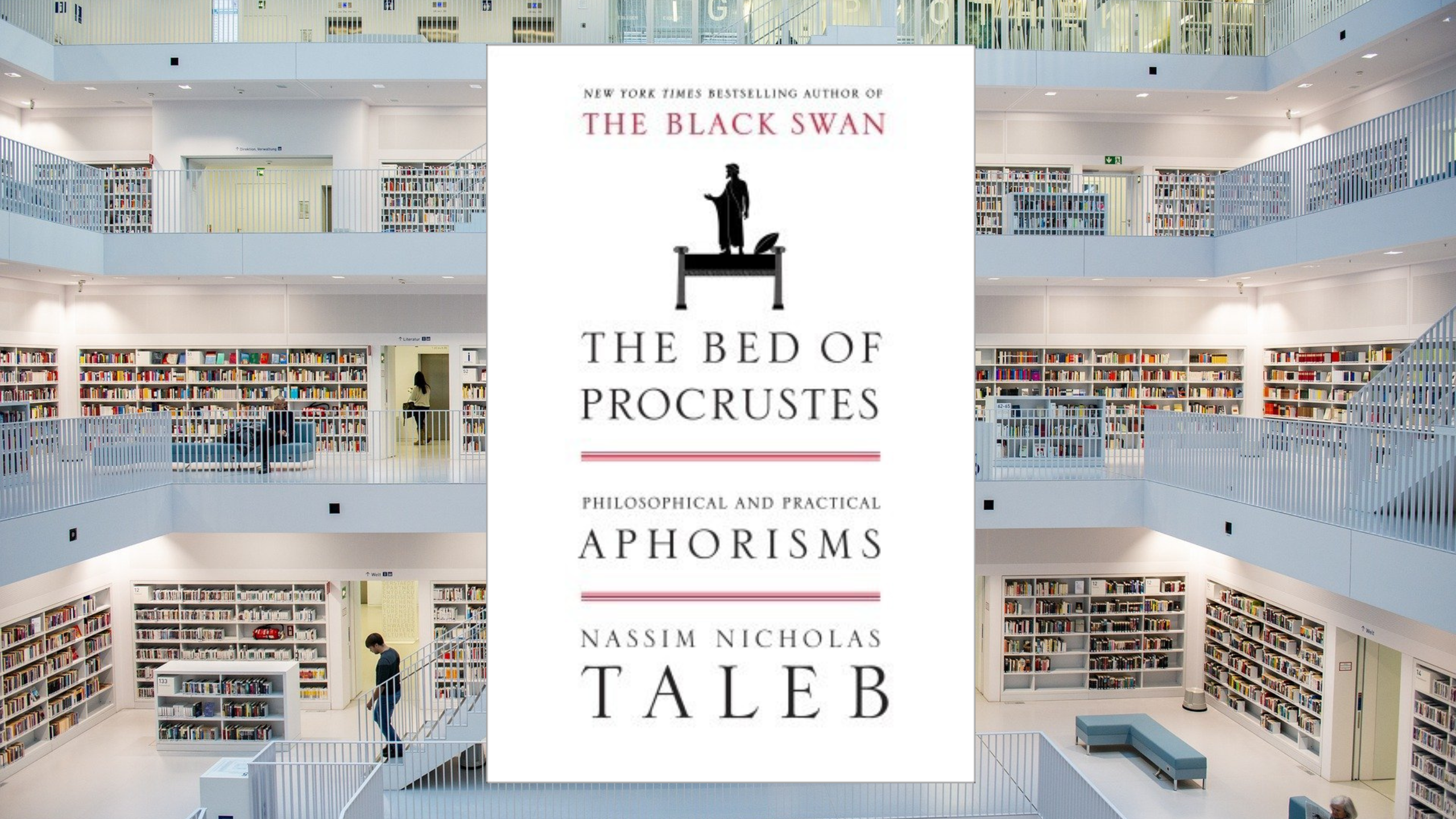
The Bed of Procrustes, by Nassim Taleb
“The three most harmful addictions are heroin, carbohydrates, and a monthly salary.”
“People focus on role models; it is more effective to find anti-models - people you don't want to resemble when you grow up."
“The difference between love and happiness is that those who talk about love tend to be in love, but those who talk about happiness tend to be not happy."
This Book on Amazon: The Bed of Procrustes, by Nassim Taleb
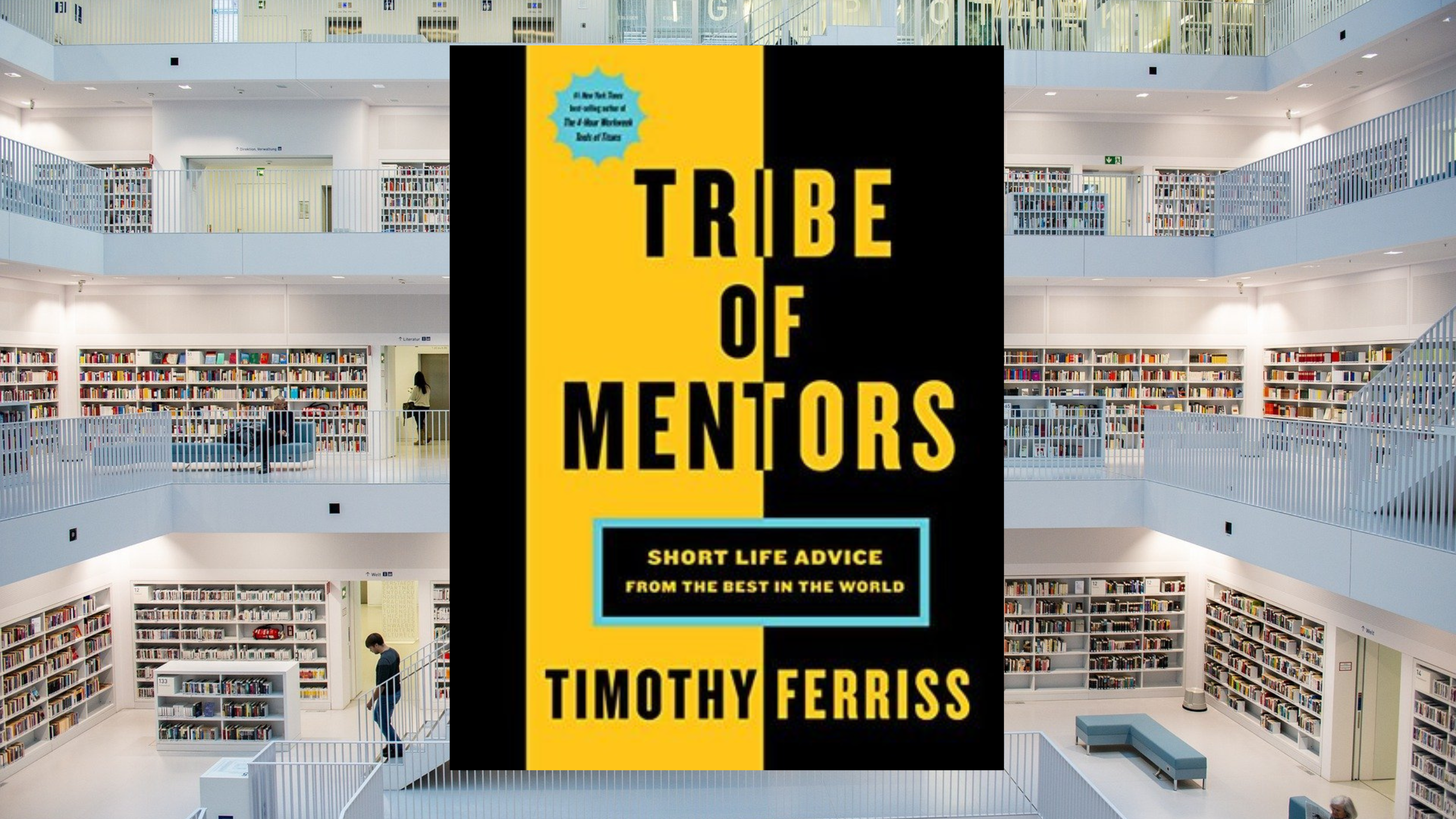
Tribe of Mentors, by Tim Ferriss
“Often, all that stands between you and what you want is a better set of questions.”
“Don’t do things that you know are morally wrong. Not because someone is watching, but because you are. Self-esteem is just the reputation that you have with yourself. You’ll always know.”
“I believe that the key to self-sufficiency is breaking free of the mindset that someone, somewhere, owes you something or will come to your rescue.”
This Book on Amazon: Tribe of Mentors, by Tim Ferriss
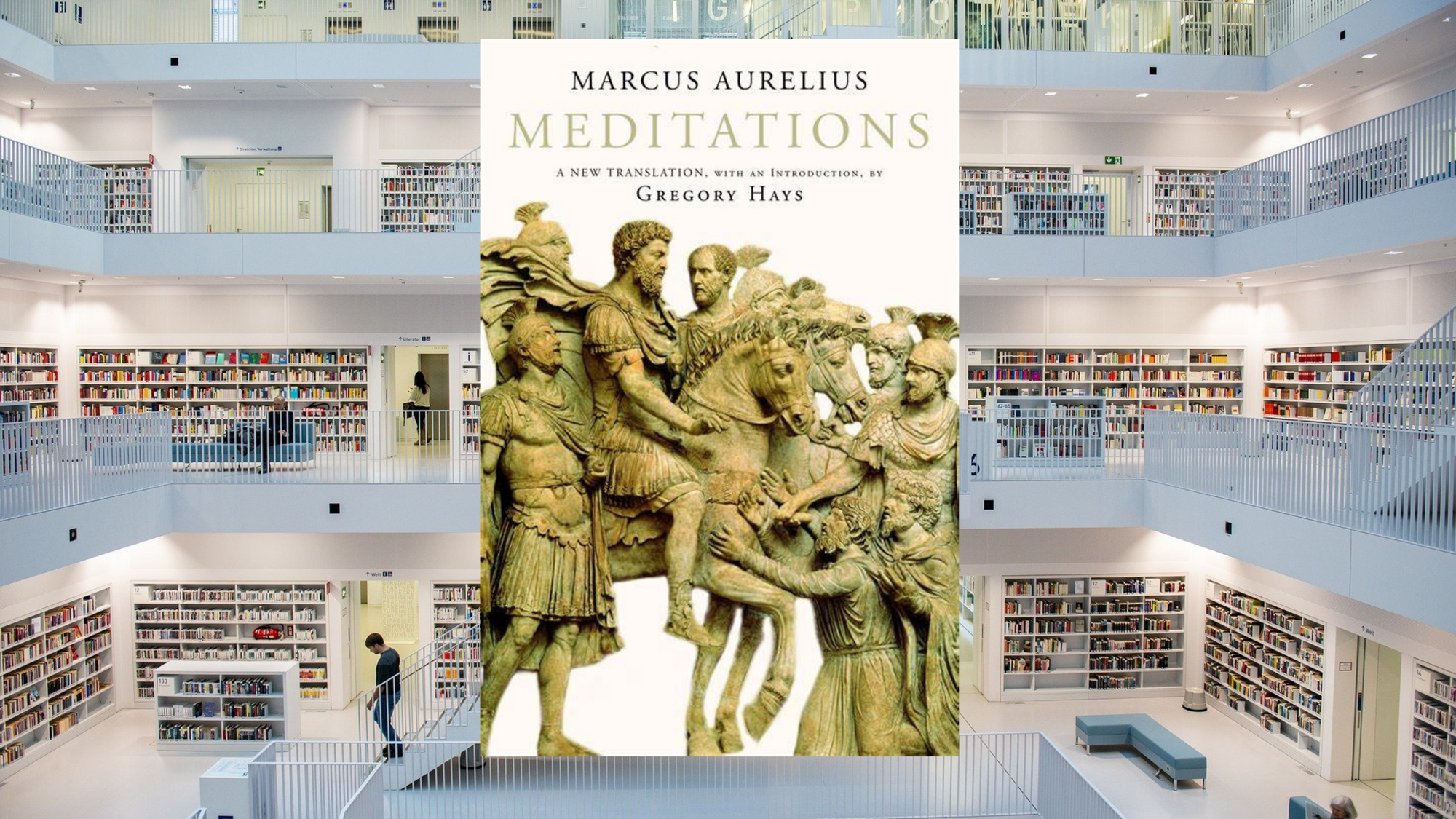
Meditations, by Marcus Aurelius:
“It is not death that a man should fear, but he should fear never beginning to live.”
“You have power over your mind - not outside events. Realize this, and you will find strength.”
“Dwell on the beauty of life. Watch the stars, and see yourself running with them.”
This Book on Amazon: Meditations, by Marcus Aurelius

Total Freedom, by Jiddu Krishnamurti
“Teaching is not the mere imparting of knowledge but the cultivation of an inquiring mind.”
“Teaching is the noblest profession—if it can be called a profession at all. It is an art that requires, not just intellectual attainments, but infinite patience and love.”
“The truth is that as long as there is a point in the mind which is moving toward another point, that is, as long as the mind is seeking security in any form, it will never be free from pain. Security is dependency, and a mind that depends has no love.”
This Book on Amazon: Total Freedom, by Jiddu Krishnamurti

The View from the Opposition:
No one's ideas are beyond questioning. In this section, I argue the case for the opposition and raise some points that you might wish to evaluate for yourself while reading this book.
#1: Nothing to see here!
The major criticism that's leveled against this book is the lack of original thinking, but Naval has never claimed originality, and absolutely not perfection. Many of the ideas and concepts here are going to be familiar to wide readers of non-fiction, and also to followers of Naval himself, but I found it incredibly useful to have them all in one place.
Not to mention the fact that these are things that most of us should be pretty much constantly reminding ourselves of all the time! Reigning in our desires, focusing our efforts where they'll do the most good, committing to the long-term; if you keep this book, and this wisdom, close at hand, you're going to be just fine.
"The test of a first-rate intelligence is the ability to hold two opposed ideas in the mind at the same time and still retain the ability to function.”
-F. Scott Fitzgerald

Action Steps:
So you've finished reading the book. What do you do now?
#1: Give up on the idea of problems.
See if you can't do a total reframe on the idea that there are problems that exist in your life right now. Is it possible for you to see them as worthy challenges, something that you'll have to evolve as a person in order to solve?
This by no means is to say that what you're facing isn't serious - it probably is. And this is also not about avoiding your problems and running away from them. Rather, it's about shedding a weight, freeing up some mental bandwidth that you can then use to surmount your current difficulties and clear the air.
#2: Select one overarching desire.
It's lethal to your happiness to have more than one big desire operating in your life at any one time. Naval says that a desire is a place in your life where you've chosen to be unhappy. So you can see what having a multitude of big desires can do to one's happiness!
See then if you can't pick just one thing that you want more than anything, and then give your entire focus in that one area. It could be growing your social media following, or getting out of debt, or going on a dream vacation, but it's important that that be the only big desire that you have, and that you reduce the importance of any smaller desires you might feel, ignoring them completely if possible. You'll notice an instant boost in happiness and peace.
#3: Set the goalposts.
One of the hardest financial skills to master is to get the goalposts to stop moving, to stop when you've reached a certain milestone, instead of immediately setting the next goal even further down the road, after which you'll finally give yourself permission to be happy. Or so you tell yourself.
A reasonable way of going about this is to investigate exactly how much money you need to have in order to cover your current needs, plus a little extra, and then pledge not to go beyond that. You can save, donate, or invest the excess, but the moment you start looking beyond that to what else is out there is the moment your desires start to run away from you and you're no longer free.
#4: Set the rules of the game.
Identify the multi-player games you're currently playing, and get out of them if they no longer serve you. If you find yourself locked in destructive cycles of competition and envy, you should entertain the possibility that you're just playing the wrong game with the wrong people.
Multi-player games are all about beating the other guy, about having more, and about being better. Competition can be healthy and fun, but it can also be twisted easily into something horribly destructive and counterproductive.
Single-player games, on the other hand, are played by yourself, against yourself, and for yourself, and that's where the most lasting meaning and fulfillment is to be found. Carefully delineate your own victory conditions, and don't get caught up in the ego games of the other players.
#5: Niche down.
Instead of trying to be in the top 1% of just one thing, try entering the top 10% of two different things, and then combining them in a unique way. This gives you unique value, instead of just being "another one of those." You're then developing specialized knowledge that society can't train you for. That's what will separate you.
The best example I can think of here is Scott Adams, the creator of the Dilbert comic strip. He's said himself that there are plenty of people who can draw better than he can, although he can draw pretty well. There are also people who are way funnier than he is, but he's also pretty funny. It's in the intersection of those two skillsets that he has found stratospheric success.
#6: Perform an 80/20 analysis on your whole life.
Identify the leverage points you have access to in your own life, and then do what you can to allocate your resources most effectively. The Pareto Principle states that 80% of your results comes from 20% of the actions you perform, and it's in the identification of that 20% that you find your leverage.
You can actually go about this in a rather systematic way. For example, you could take a look at all of your current expenses and see where you can free up some extra cash. That money can then be invested so that you see a return on that money, instead of having it be under-leveraged, or being spent on something you don't really care about or enjoy.
Or, perhaps the ultimate leverage, you could track exactly how you're currently spending your time, and then eliminate any wasted space in your calendar. Having freed up an hour or two, you could then leverage that time by dedicating it to learning. And if you still don't "have" an extra hour in your day, think about your current commitments in terms of priorities: is what you're doing with that time now more important than learning?


About the Authors:
Naval Ravikant (right) is an Indian-American entrepreneur and investor. He is the co-founder, chairman, and former CEO of AngelList. He has invested early-stage in over 200 companies including Uber, FourSquare, Twitter, Wish.com, Poshmark, Postmates, Thumbtack, Notion, SnapLogic, Opendoor, Clubhouse, Stack Overflow, Bolt, OpenDNS, Yammer, and Clearview AI, with over 70 total exits and more than 10 Unicorn companies. He is also a podcaster who shares advice on pursuing health, wealth, and happiness.
Eric Jorgenson (left) is an entrepreneur, writer, and investor. He is on the founding team of Zaarly, and has been publishing online since 2014. His blog has educated and entertained over a million readers.
Additional Resources:
Naval's Recommended Reading List
Bonus Section from Naval on Investing
This Book on Amazon:
The Almanack of Naval Ravikant, by Eric Jorgenson
If You Liked This Book:
Meditations, by Marcus Aurelius
How to Change Your Mind, by Michael Pollan
Tools of Titans, by Tim Ferriss
Tribe of Mentors, by Tim Ferriss
Skin in the Game, by Nassim Taleb
The Bed of Procrustes, by Nassim Taleb
The Book of Life, by Jiddu Krishnamurti
